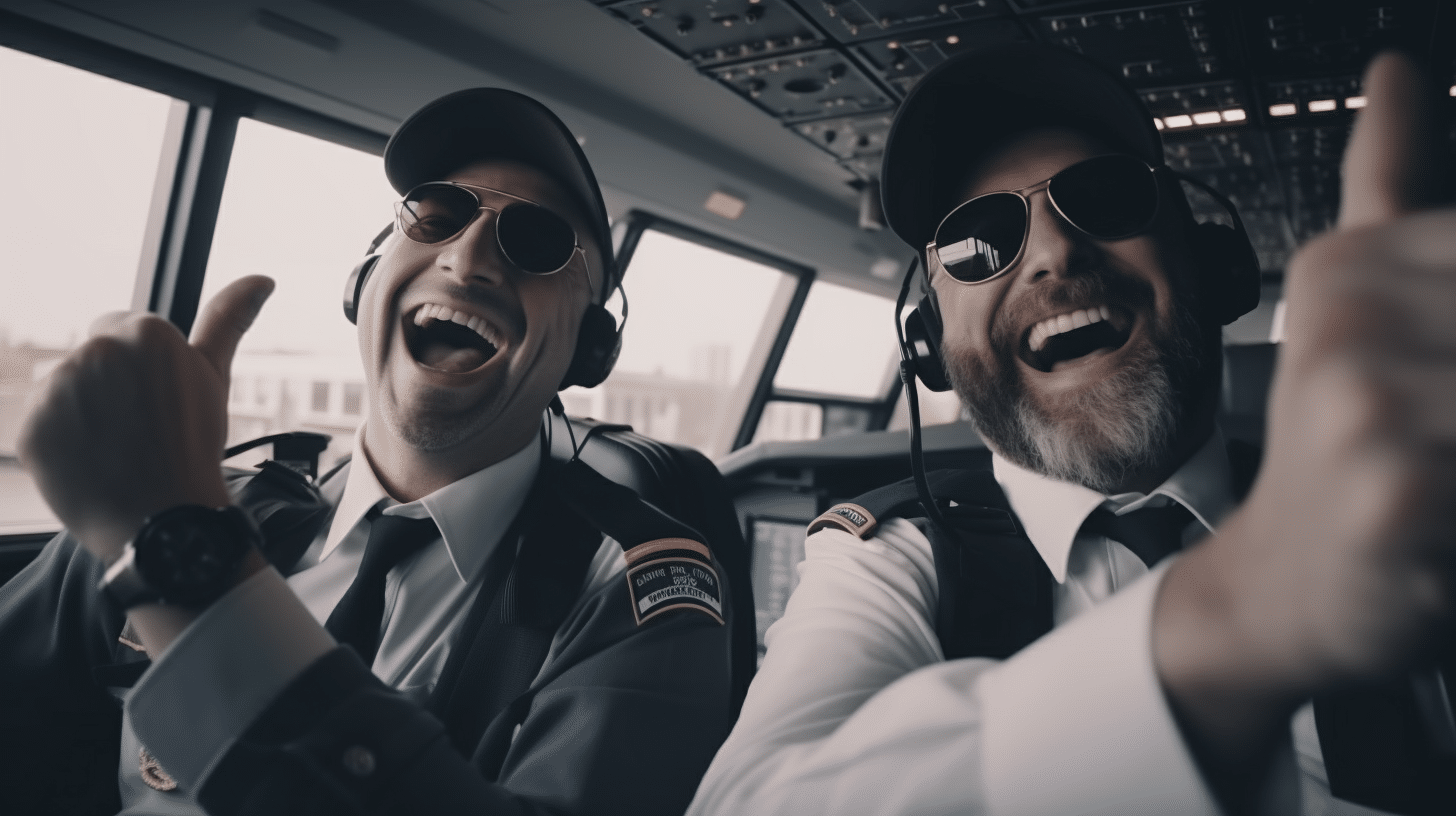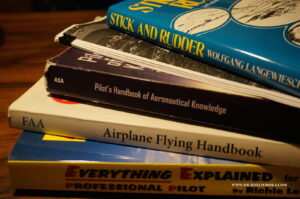How hard is it to become a pilot?

Imagine soaring through the clouds, the world beneath you, the horizon stretching out in front. This is the dream of becoming a pilot.
But how hard is it to turn this dream into reality? How hard is it to become a pilot? I want to shed light on the journey of becoming a pilot, the challenges you’ll face, the rewards you can reap, and the comparisons to other professions.
We’ll delve into the specifics of pilot training, the qualifications required, and the job market for pilots. We’ll also explore the unique challenges female pilots face and the impact of age, expense, and the choice of flight school on your journey.
So, read more to find out everything you need to know!
Is It Really That Hard To Become A Pilot?
Becoming a pilot, whether you want to become a commercial pilot or to become a bush pilot, is no walk in the park. It’s a path laden with challenges, each more demanding than the last, making it hard to be a pilot.
This arduous journey tests one’s mental fortitude, physical stamina, and financial resources. It’s a challenging yet rewarding career that requires constant learning and adaptation.
The first hurdle in obtaining a pilot license is the cost of pilot training. The financial burden can be significant, with expenses ranging from flight school fees to the cost of textbooks and equipment. Pilots also need to put in the hard work to cover these costs.
Next comes the time commitment. Pilot training takes a lot of work. It requires dedication and perseverance, with students often spending long hours studying and practising their flying skills. Pilots also need to be prepared to put in the hard work during this phase.
The complexity of the training courses adds another layer of difficulty to becoming a pilot. From learning the principles of flight to understanding air law and navigation, the required breadth and depth of knowledge can be overwhelming. Pilots also need to navigate through this complexity with dedication.
Physical fitness is another crucial aspect. Pilots must be in good health and have good vision to handle the physical demands of flying. This includes passing a rigorous medical examination to earn a Class 1 Medical certificate. Pilots also need to maintain their physical fitness throughout their careers.
Understanding the Basics of Becoming a Pilot
Pilots, the masters of the sky, come in various forms – commercial, private, and airline pilots, each with unique responsibilities.
To become a pilot, one must meet the age limit, physical fitness, and English proficiency requirements. However, these are just the initial steps.
The real challenge lies in the rigorous training and examinations required to earn the pilot’s license.
This journey is about more than meeting the basic requirements. It’s about dedication, perseverance, and a passion for flying. It’s about the willingness to invest time, effort, and money into a demanding yet rewarding career.
It’s about the dream of soaring through the skies and the determination to make that dream come true.
Essential Qualifications and Certificates You Need
Earning a pilot’s license requires several stages, starting with ground school for aviation theory and 14 ATPL exams. Next, practical training covers basic flying, solo flights, instrument rating, and multi-engine operations.
The final stage, Multi-Crew Cooperation (MCC)/Airline Qualification Course (AQC), trains students for multi-crew aircraft operation. Pilots must maintain a Class 1 Medical certificate to ensure fitness for professional flying.
What You Need to Become a Private Pilot?
To become a private pilot, the journey begins with comprehensive ground school education, where you delve into aviation theory. This foundational stage is crucial for understanding flight principles and navigation, and is required to become adept in the basics of piloting.
While you don’t need to pass all 14 ATPL exams, a strong theoretical base is beneficial for your flying time and overall skill development. Practical flight training follows, where you learn and master basic flying skills under an instructor’s guidance.
This phase includes solo flight training, an essential milestone where you pilot the aircraft independently, accumulating required flying time. Though not mandatory, obtaining an instrument rating can significantly enhance your skills and flight time experience.
Throughout your training, maintaining a Class 2 Medical Certificate is crucial, ensuring you meet the health standards required to become a private pilot.
What You Need to Become an Airline Pilot?
Aspiring airline pilots embark on a more extensive training journey, illustrating how hard it is to become an airline pilot. After ground school and passing the 14 ATPL exams, you’ll undergo advanced practical training.
This includes mastering complex flying skills, instrument rating, and multi-engine operations, all integral parts of what becoming an airline pilot involves. A critical component is the Multi-Crew Cooperation (MCC) and Airline Qualification Course (AQC), which prepare you for operating in a multi-crew aircraft environment, emphasizing teamwork and standard airline procedures.
The final stages of training involve rigorous flight tests to assess your skills comprehensively. Importantly, an airline pilot requires a Class 1 Medical Certificate, attesting to a higher standard of health and fitness required for professional flying.
What You Need to Become an Airline Pilot?
Aspiring airline pilots embark on a more extensive training journey, illustrating how hard it is to become an airline pilot. After ground school and passing the 14 ATPL exams, you’ll undergo advanced practical training.
This includes mastering complex flying skills, instrument rating, and multi-engine operations, all integral parts of what becoming an airline pilot involves. A critical component is the Multi-Crew Cooperation (MCC) and Airline Qualification Course (AQC), which prepare you for operating in a multi-crew aircraft environment, emphasizing teamwork and standard airline procedures.
The final stages of training involve rigorous flight tests to assess your skills comprehensively. Importantly, an airline pilot requires a Class 1 Medical Certificate, attesting to a higher standard of health and fitness required for professional flying.
How hard is it to get a pilot license?
Obtaining a pilot license, such as a student or a commercial pilot license, involves passing both written and practical exams, which can be challenging for many pilots.
To obtain a student pilot license, an individual must meet certain age and English proficiency requirements, pass a medical examination, and receive an endorsement from a certified flight instructor.
For a commercial pilot license, the conditions are more extensive. Applicants must log a specific number of flight hours, which includes solo flights and flights with an instructor, pass a rigorous written exam, and demonstrate their flying skills during a practical flight test.
Additionally, pilots must maintain their skills and knowledge, as piloting demands continuous learning and adaptation to new technologies and regulations.
This process ensures that pilots are well-prepared for flying responsibilities, prioritizing safety and proficiency in the air.
Is It Hard To Find A Job In The Pilot Career Field?
Securing a career as a pilot can be as challenging as the training itself. The aviation industry is highly competitive, and depending on the type of pilot role one is aiming for, landing a job often depends on the state of the industry and the connections made during training.
The job market for pilots can fluctuate based on various factors, including economic conditions, airline expansions or contractions, and retirements within the existing workforce.
For instance, the recent pilot shortage in America has made securing a job as an airline pilot relatively easier. However, this is only sometimes the case. Even after completing flight school, newly qualified pilots often need to accumulate a certain number of flight hours before they can fly for an airline, preeminent.
This could involve working as a flight instructor or jogging for a regional airline, a common stepping stone in an aviation career.
Pilots must be adaptable and persistent, understanding that their path to flying for a major airline may involve several steps and diverse flying experiences.
Is Being a Professional Pilot Dangerous?
Like any profession, being a pilot comes with its own set of risks. However, it’s important to note that aviation is one of the safest forms of transportation, thanks to stringent safety regulations and advanced technology.
That said, pilots are often faced with challenging situations. They must navigate through adverse weather conditions, respond to mechanical issues, and ensure the safety of their passengers and crew. These responsibilities can be stressful and require high skill and composure.
Moreover, the physical demands of the job can also pose risks. Long hours, irregular sleep patterns, and the physical strain of flying can affect a pilot’s health.
This is why regular medical check-ups and maintaining a healthy lifestyle are crucial for pilots.
Is It Hard for a Female to Become a Pilot?
The aviation industry, once male-dominated, is seeing an increase in female pilots. However, women still represent a small fraction of pilots and face unique challenges.
Societal stereotypes and biases can create hurdles, including doubts about abilities, discrimination, and lack of representation.
Despite these challenges, more women are entering the field and proving their capabilities. The training and qualifications to become a pilot are gender-neutral.
Women, like men, must pass rigorous exams, maintain physical fitness, and demonstrate flying skills.
The difficulty for women often lies not in meeting these requirements but in overcoming societal barriers.
The Impact of Age, Expense, and Flight School on Becoming a Pilot
Age, expense, and the choice of flight school can significantly impact the journey to becoming a pilot. Age plays a role in both the start and end of a pilot’s career.
While you can begin training as a student pilot from a young age, there are also mandatory retirement ages in the industry.
The expense of becoming a pilot can be a significant hurdle. The cost of flight school, textbooks, equipment, and examination fees can add up, making it a substantial financial investment.
Scholarships, sponsorships, and financial aid can help offset these costs. Still, the financial aspect remains a considerable challenge for many aspiring pilots.
The choice of flight school is another crucial factor. The quality of training, the qualifications of the instructors, and the resources available can all influence a student’s success in becoming a pilot.
Researching and choosing a flight school that best fits your needs and career goals is essential.
With careful planning, financial management, and the right training, becoming a pilot is achievable.
Becoming a pilot requires meeting age, physical, and English proficiency standards. The true test, though, lies in the demanding training and exams necessary to secure a pilot’s license.
Yes, it is hard to become a pilot as it involves meeting strict standards, undergoing rigorous training, and passing complex examinations to secure a pilot’s license, but it is not impossible.
Yes, it can be challenging for a woman to become a pilot, not because of gender-specific obstacles, but due to the same rigorous standards, training, and examinations that all aspiring pilots must undergo.






